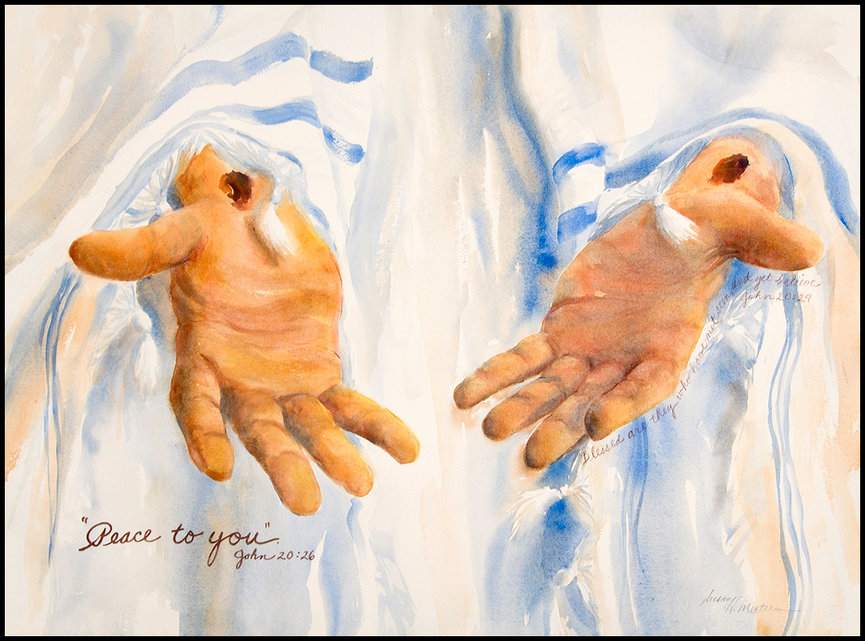
“Peace be with you.”
The peace of Christ brings fortitude, forgiveness, and faith.
What do we usually do when we are afraid? We shut our doors and hide. What do we normally do when we are angry at someone who has hurt us? We close our doors and do not want to do anything with that person? What do we usually do when we are in doubt? We shut the doors of our minds and become cautious about being misled and manipulated. When we are frightened, furious, and faltering, what is it that we need?
Jesus says it in the gospel today, “Peace be with you.” And he said it three times. What does this peace mean and bring?
For fear of the Jews, the disciples locked the doors where they gathered. They were scared that they would be arrested, they who were close to Jesus. And yet Jesus came and stood in their midst and said, “Peace be with you” (Jn 20,19). When Jesus showed his hands and his side, the disciples rejoiced amid fear and worry. The peace of Christ brings fortitude.
Probably the disciples were not only afraid but also dissipated. They did not know what to do. Would they continue to testify their faith in Jesus? They did feel not only guilty but also powerless. Aside from that, they might also be angry with those who persecuted Jesus – Judas who betrayed their Lord, the chief priests and Pharisees and the soldiers who arrested him, Pilate who did not testify to the truth, or to the crowd and onlookers who shouted, "Crucify him!" They might be furious, but they still felt perplexed and powerless. Then Jesus told them again, “Peace be with you… As the Father has sent me, so I send you. And he breathed on them and said, “Receive the Holy Spirit. Whose sins you forgive are forgiven them, and whose sins you retain are retained” (Jn 20,21-23). The peace of Jesus sends one to the mission and gives the power to forgive.
Now there was Thomas, one of the Twelve, the only one who was still not believing that Jesus had indeed risen. He was skeptical and unbelieving. Thomas wanted proof, “Unless I see the mark and put my finger into his side, I will not believe” (Jn 20,25). A week later, Jesus appeared to them, and to Thomas, he said, “Peace be with you… Do not be unbelieving, but believe… Blessed are those who have not seen and have believed” (Jn 20,26-27.29). The peace of Jesus brings deeper faith, even to those who have not heard and seen.
I remember a housewife who was problematic with her husband. She was furious at him for having an affair with another woman and failing to provide for their family. She became doubtful every time she would sleep, and her husband was not yet beside her in bed. More than anything, she was afraid that her husband would finally abandon her and their children. She didn’t know anymore what to do nor have someone to go to. When asked, I told her, “Let us pray for him.” But she responded, “How will I pray when I do not know anymore what to say in prayer?”
After some weeks, I saw her again. When before, she looked down and desperate, now she is calm and confident. When I asked her what happened, she said, “I do not know if my husband still sees her, but I felt calm now. I would just spend every night in prayer without saying anything but crying. Gradually, I felt some peace. I learned to accept the weaknesses and failures of my husband. I focused more on what I can do for our family, where my husband fails to provide. I just pray that my husband would finally realize. And I believe, even if it would hard, I can still forgive.”
When we are frightened, furious, and faltering, the peace of Christ brings us fortitude, forgiveness, and faith. On this Divine Mercy Sunday, may the Lord have mercy on us and grant us peace. Amen.
Fr. Erwin Blasa

